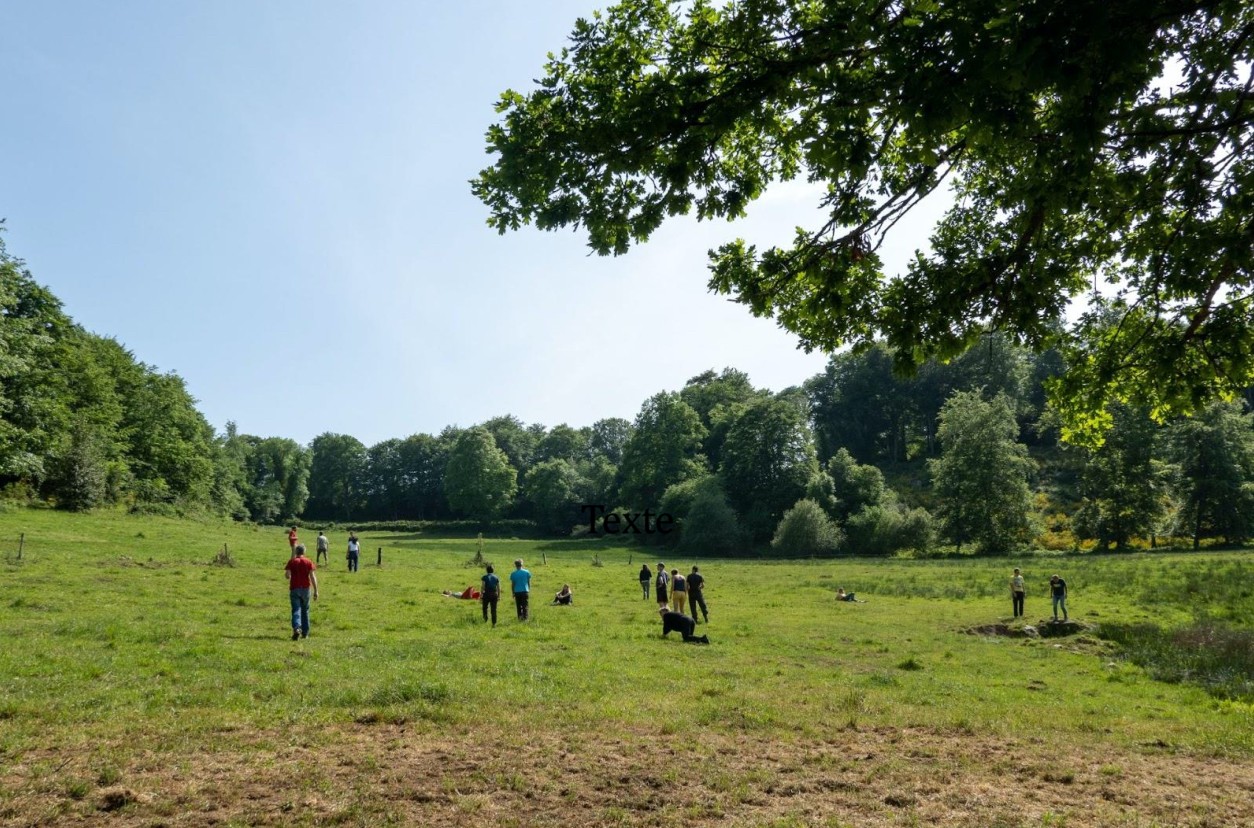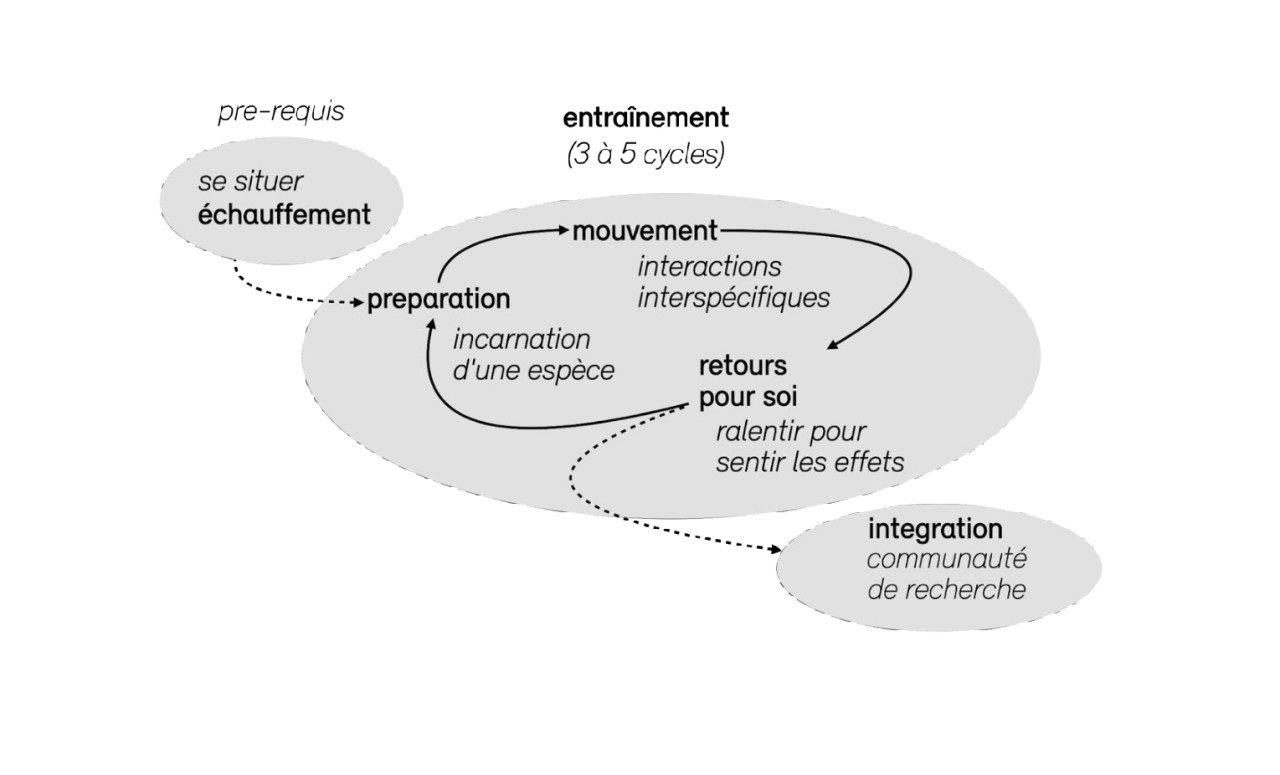Une Assemblée Pastorale
Experiencing cohabitation situations from the perspective of other living beings
UAP was developed with a group of concerned people. It is the result of research initiated in 2017 by the Quartier Rouge association to prepare for the return of wolves to the Limousin Mountains with Benoît Verjat (designer) and Boris Nordmann (artist).
A pastoral assembly (UAP) is a bodily practice that proposes to collectively experience concrete cohabitation situations from the perspective of other living beings, in order to formulate hypotheses and develop embodied knowledge and mutual support within a pastoral research community.
By adopting the perspective of herd members (cows, goats or sheep), wild or domestic canids, foxes, ungulates, etc., each participant experiences local parameters such as the importance of the character of individual animals, the specificities of the landscape or the effects of herd protection measures on emotions and behavior. The participants don't play a role, nor do they have any preconceived idea of the movements or behaviors to adopt. They put themselves in the shoes of an animal otherness, and from this state, simply let themselves live.
UAP takes place indoors or outdoors, in an environment previously explored with a local resident. The session begins with the formulation of questions to be worked on during the session. After a warm-up designed to help you find your way into the animal world, a period of preparation allows you to make contact with individuals of your species. This is followed by a time of movement, in an interspecific relationship, interrupted according to the course of the action by a time of return for oneself, which enables you to look back on the experience in a way that intensifies it and prepares you for sharing with others. After 2-5 cycles of preparation-movement-return for oneself, an exit from the animal being, followed by a time spent in duet, allowing us to look back on the experience, the session concludes with the formulation of hypotheses prompted by the experience.
This transformative practice opens the door to the joint creation of situated knowledge (just as valid as general knowledge derived, for example, from ethology), which forms the basis of a territorial dialogue to invent proposals, launch experiments or accompany the transformation of the environment and its inhabitants.




